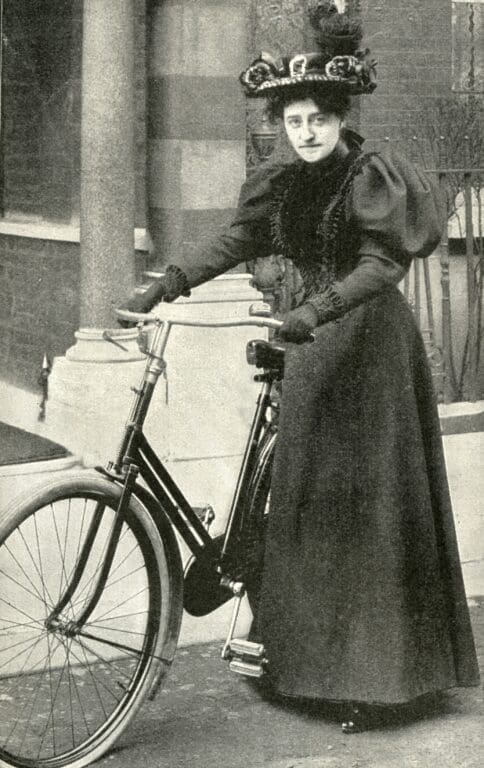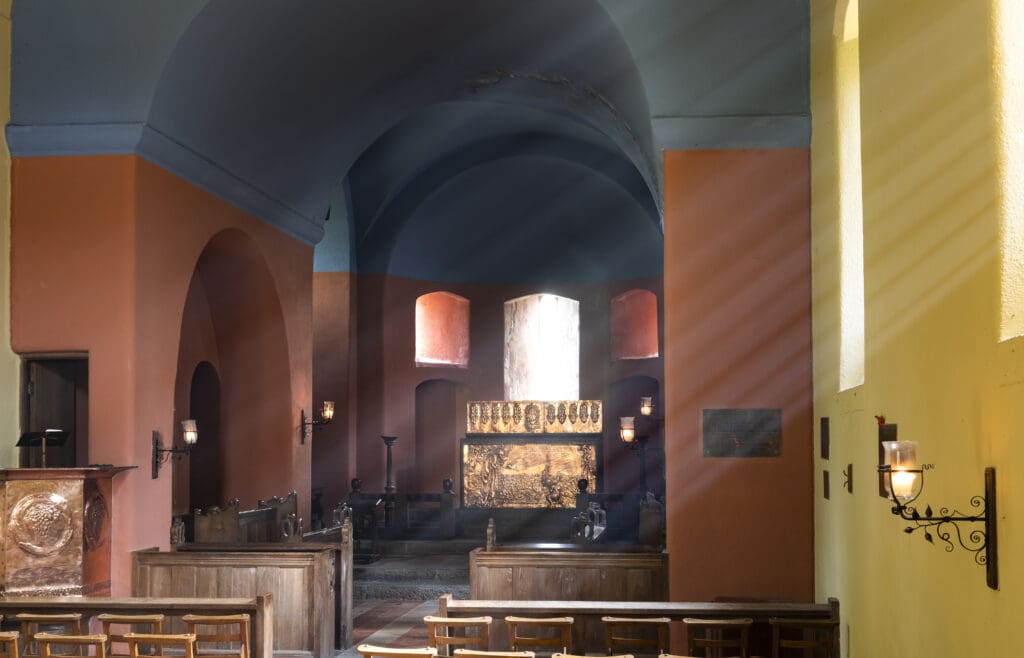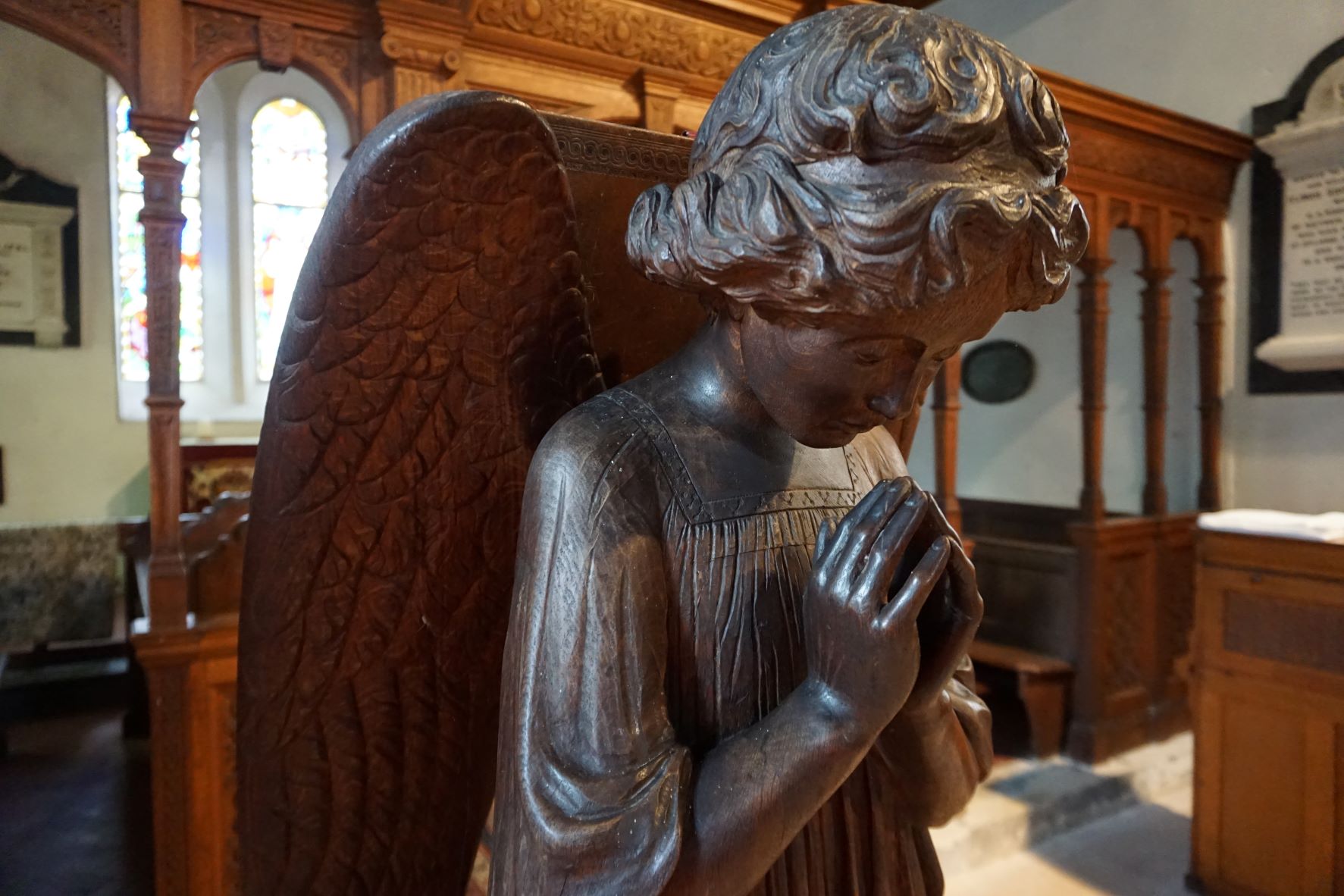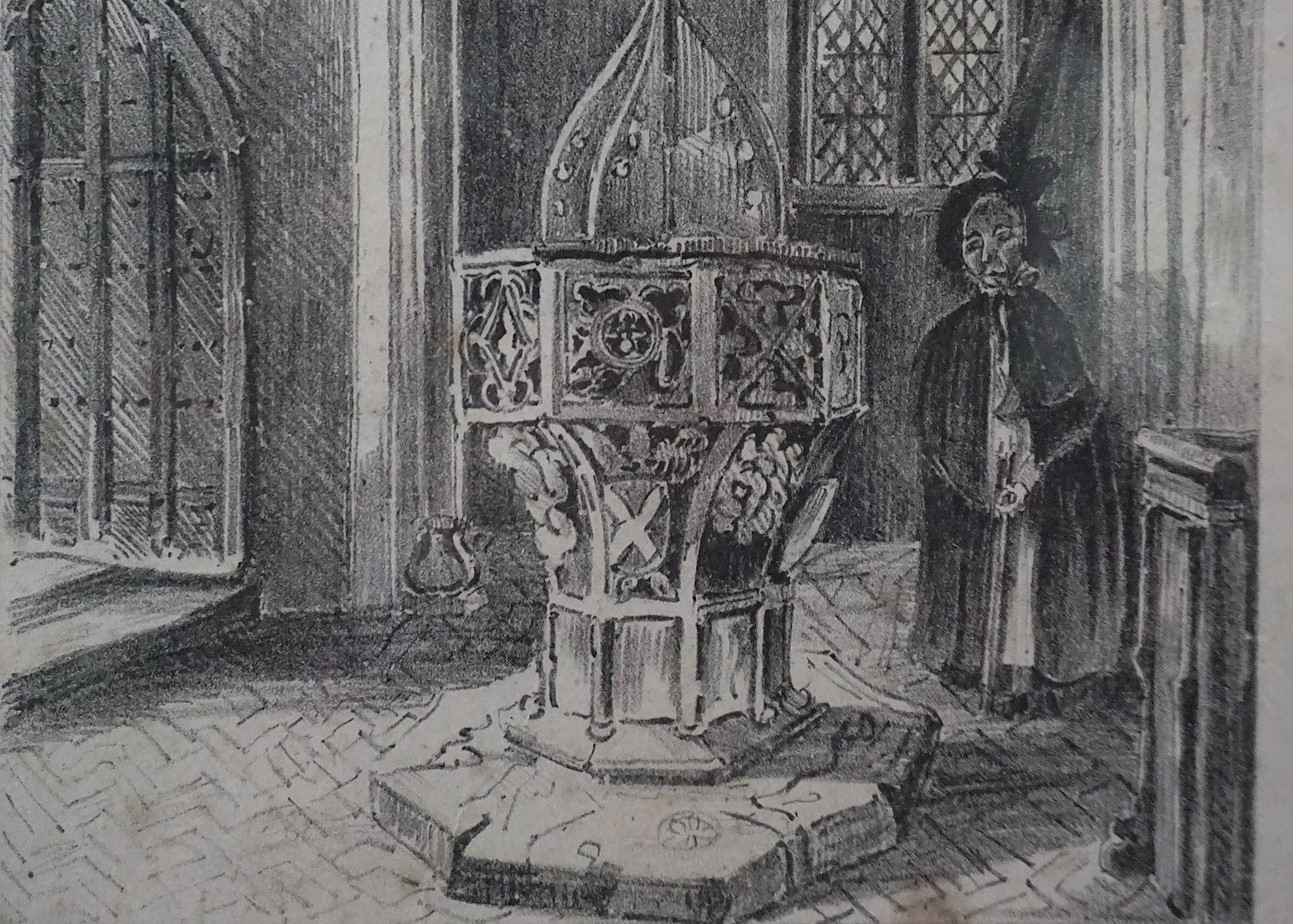
Published: 05/03/2022
Updated: 28/04/2022

Madame Sarah Grand (©BathInTime)
We have nearly 60 churches in our care spanning more than 1000 years of history. The structure of society has meant that the vast majority of architects, craftspeople, clergy, and high-profile parishioners have been men. However, half of the people who worshipped in our churches over the centuries were women, and women have played instrumental roles in the history of the buildings and parishes — providing spiritual inspiration, financial backing, community leadership, and a wide range of skills and expertise. We’re also proud to have connections to many trailblazers — women who broke through barriers in their time.
To celebrate the history of women connected to our churches, we’ve created four blogs, which you can discover more about below.
We hope that by celebrating the contributions of these women, we can honour all of the women in our rich history, including those less privileged, those whose names we will never know, and those whose stories are still waiting to be discovered.
The heroic and pious examples set by fifth century Welsh saint Ellyw, third century Greek saint Helen, and fourteenth century holywoman Margaret Marloes, inspired early and medieval Christians to acts of devotion and dedication, including the foundation of churches in their names. But their true stories are shrouded in mystery.

Learn about Lady Mander, a founder of the Friends of Friendless Churches, and about the tragedies and challenges that inspired Louisa Tooth, Mary Barton, Louisa Harris, Bertha Kessler & Katherine Hudson to build new churches in the 19th and 20th centuries.
Plus, find out how Mrs Wienholt and the ladies of Laugharne helped to save Llandawke church.

At Penmorfa, wood carver Constance Greaves and stained glass maker and conservator Joan Howson have left examples of their beautiful work for all to enjoy.
... while hidden away on the roof at St Mary's, Caldecote, Katherine Morris left a permanent record of her work.

We're proud about our churches' connections to pioneering women like Ann Walker, partner of 'Gentleman Jack'; Mary Flint, female parish clerk; militant suffragette Isabel Seymour; feminist author Madame Sarah Grand and the fossil-hunting women associates of Cambridge University's Sedgwick Club.
